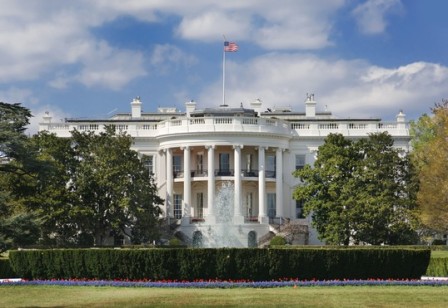Obama’s Proposed Reorganization – Help or Hindrance?
President Barak Obama has proposed a wholesale reorganization of several government agencies that deal with various aspects of business and trade. The plan
would merge business functions of the Commerce Department with the Export-Import Bank, the Office of the U.S. Trade Representative, the Overseas Private Investment Corporation, the Small Business Administration and the Trade and Development Agency. The idea has received both approval and disapproval from members of Congress and business representatives.
“Given the president’s record of growing government, we’re interested to learn whether this proposal represents actual relief for American businesses or just the appearance of it.” Brendan Buck, Spokesman for House Speaker John Boehner
Obama insists that the move would help business by reducing the number of separate agencies they might deal with. This was echoed by House Speaker John Boehner, whose spokesman Brendan Buck said, “Eliminating duplicative programs and making the federal government more simple, streamlined and business-friendly is always an idea worth exploring.” And on the surface reducing the size of the federal government would seem to be a good idea.
On the other hand, many in Congress are skeptical of one or more elements of the plan. Even Buck went on to say, “Given the president’s record of growing government, we’re interested to learn whether this proposal represents actual relief for American businesses or just the appearance of it.” Some Democrats also expressed concern, particularly for Obama’s request for an “up or down” vote within 90 days.
According to a Wall Street Journal report (“President Barak Obama Proposes Merging Agencies”), Obama “requested that
The President insists that this plan will save $3 billion over ten years, in part through cutting 1000-2000 jobs through attrition. But seriously, how big a dent is this going to the multi-trilliion dollar deficit we have? And is this truly in the best interest of business and the country? According to an article in Bloomberg (“Obama’s Plan for Reorganizing Agencies Hits Skepticism from Lawmakers”), there is concern that the consolidation would actually hurt programs that are currently successful, such as the SBA loan guarantee program and the U.S. Trade Representative’s Office.Congress guarantee an up-or-down vote within 90 days on any consolidation he proposes that would save money and reduce the size of government.” Many in both parties will be hesitant to give him that kind of power. As a first step, Obama has already indicated that he will make the head of the Small Business Administration a Cabinet post, a move that does not require Congressional approval.
In a joint statement, Democrat Senate Finance Committee Chairman Max Baucus and Republican House Ways and Means Committee Chairman Dave Camp said, “Taking USTR, one of the most efficient agencies that is a model of how government can and should work, and making it just another corner of a new bureaucratic behemoth would hurt American exports and hinder American job creation.”
I fear that this move would give us the type of preference-based lending that led to the real estate crash.
My personal opinion is that this move is entirely political, with little real savings, and will result in a more intrusive bureaucracy with many of the unintended consequences such moves  have. If someone with business savvy were to look into this restructuring plan and propose something that was ostensibly more effective, I might give them a tip of the hat. The problem is, we have these proposals coming from an administration that has shown itself to be the the direct opposite of “business savvy.”
have. If someone with business savvy were to look into this restructuring plan and propose something that was ostensibly more effective, I might give them a tip of the hat. The problem is, we have these proposals coming from an administration that has shown itself to be the the direct opposite of “business savvy.”
My greatest concern, particularly with the SBA, is a return to the type of policies we had during the Jimmy Carter era. During that time period, the SBA made direct loans based on government guidelines, resulting in a 40 percent loss rate. I fear that this move would give us the type of preference-based lending that led to the real estate crash. Do we really need more lending decisions based on race, gender, zip code, or whatever buys the most votes?
Remember that these are the same people who are in the process of setting up the Obama Care nightmare, the horribly costly job-killing regulations of the EPA and the many equally intrusive attempts by the Federal government to get involved in the private sector. Imagine Solyndra-like debacles, but with the SBA’s $30 billion in guaranty authority. When you have a group of politically-motivated bureaucrats with no business sense or experience trying to “streamline” perfectly good agencies (and we have so few of these as it is), well, I see this as ending badly.
For the last 32 years I have seen attempts to restructure these agencies and nothing came of it. The last time someone did something to help the SBA, Reagan got this agency out of direct loans, with the 40 percent loss rate, and into a bank guaranty program where the losses were as low as 2 percent. From what I can see, the current proposal for rearranging these agencies is going to be about as effective as changing the napkin settings at the tables as the HMS Titanic settled under the waves.
Craig G. Francis is the owner of Francis Financial and SBA Loan Store. He has been a top producer of SBA Loans since 1981, and has worked with Dun & Bradstreet and Bank of Commerce. Craig Francis has the expertise to steer clients through the often confusing rules and regulations associated with SBA Loans, having helped over 2,500 businesses acquire over a billion dollars in loans. He can be contacted through CraigGFrancis.com, SBALoanStore.com, on LinkedIn, or at 888-666-9722.
Category: Business








